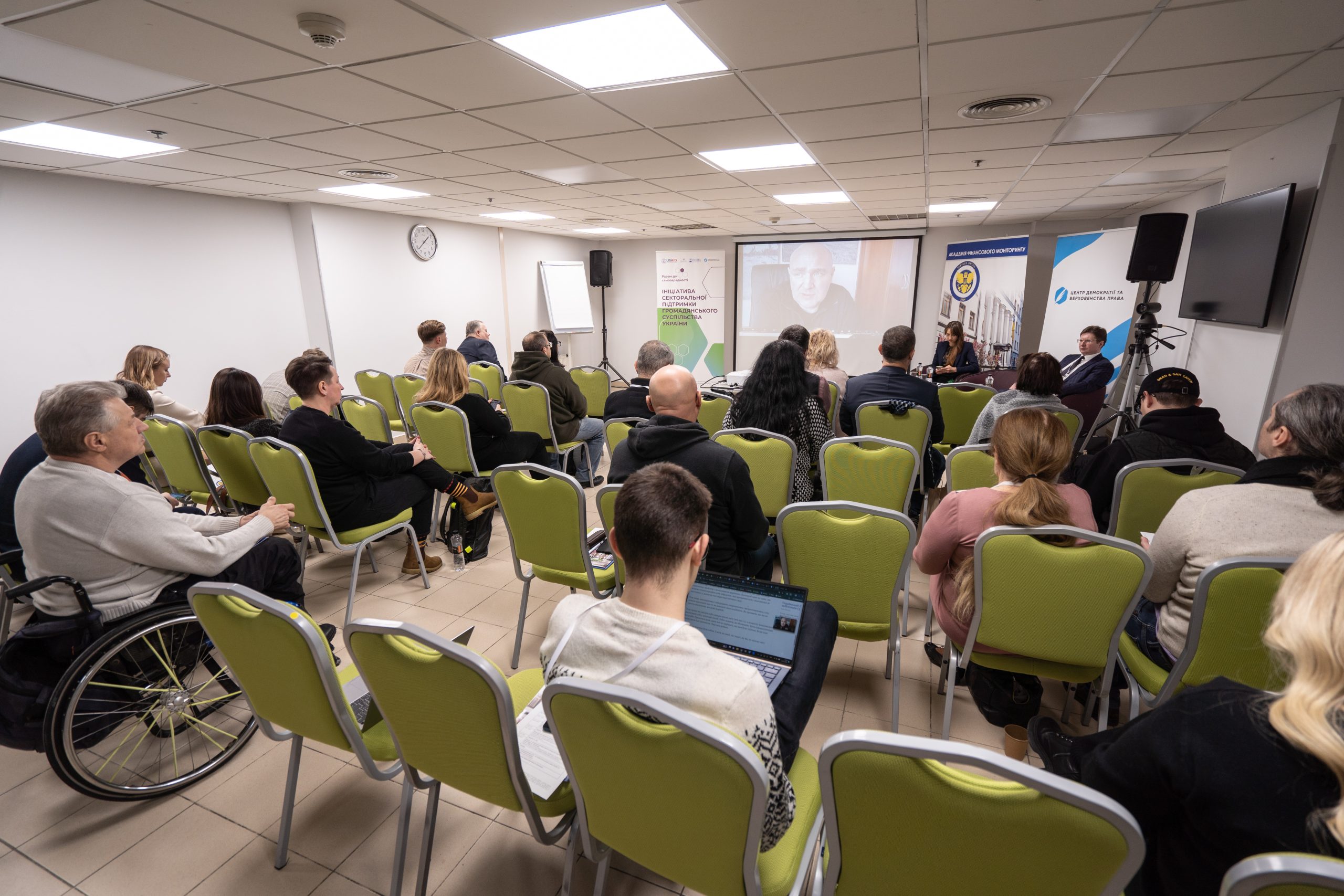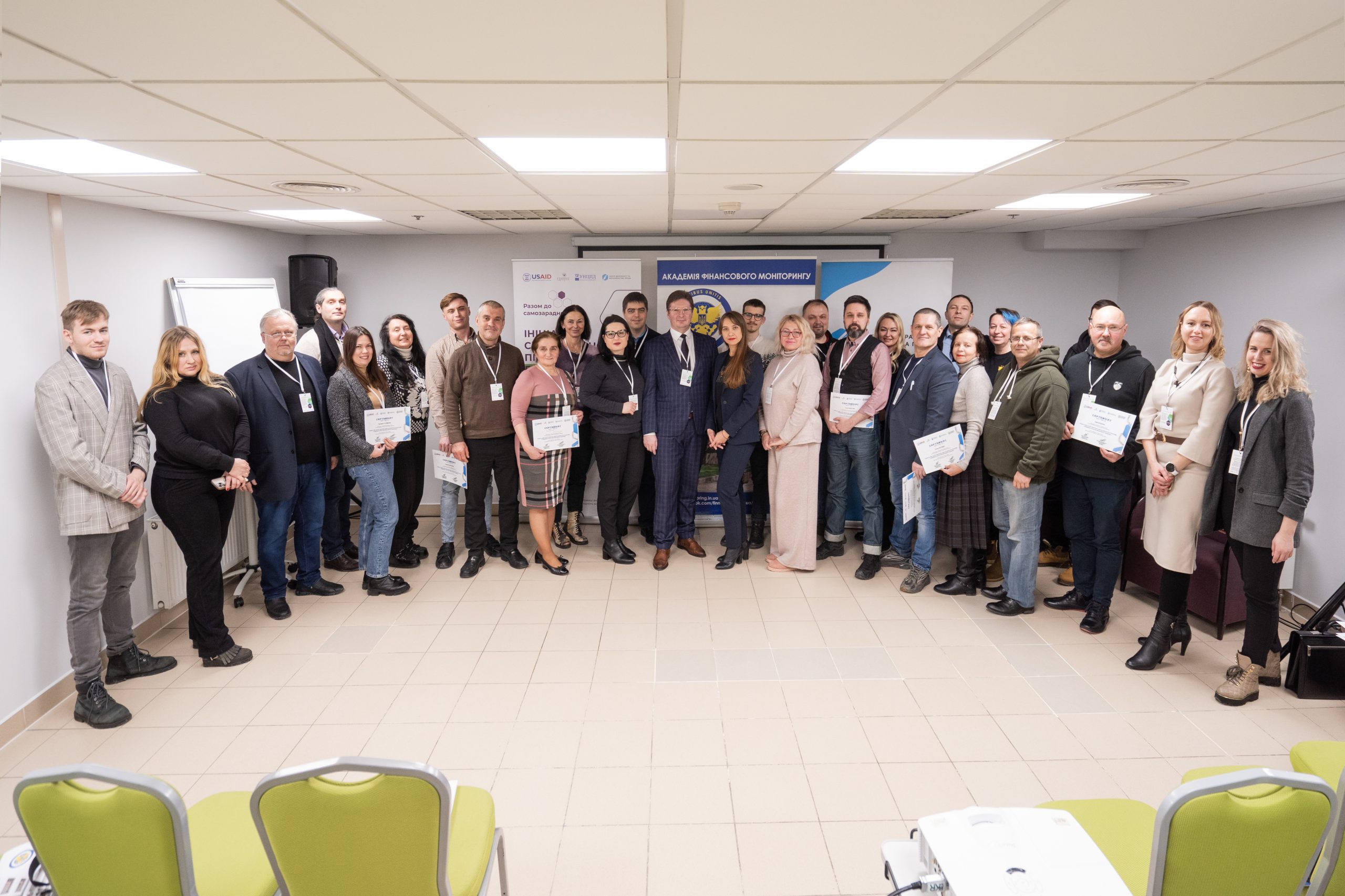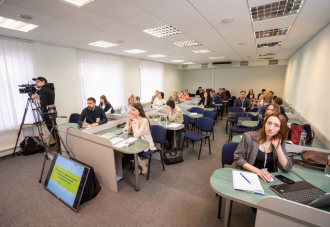On January 12, 2024, a training workshop was held in Kyiv “Protect Yourself: How CSOs Can Protect Themselves from the Risks of Being Implicated in Money Laundering or Terrorist Financing”. It was held at the joint initiative of the Centre for Democracy and Rule of Law and the Financial Monitoring Academy as part of the Project Ukraine Civil Society Sectoral Support Activity implemented by the Initiative Center to Support Social Action “Ednannia” in partnership with the Ukrainian Center for Independent Political Research (UCIPR) and Centre for Democracy and Rule of Law (CEDEM) with the support of the American people through United States Agency for International Development.

Anna Isichko, Deputy Director and Project Coordinator of the Ukraine Civil Society Sectoral Support Activity, opened the workshop. She emphasized the importance of raising awareness of the civic sector in the financial sphere. In particular, she pointed out that today it is especially necessary to pay maximum attention to their activities related to financial transactions. “The reputation that the civic sector already has today allows us to implement a large number of international and national projects, and therefore it is especially important to take care of it, as well as to prevent those risks that may arise in the context of money laundering legislation,” emphasized Anna Isichko.
The first panel of the workshop was focused on international standards on combating money laundering and terrorism financing, the topic was presented by Viktoriia Saman, Head of Division of the International Cooperation Department of the State Financial Monitoring Service. She focused her attention on the FATF Recommendation 8 (measures to counteract the illegal use of non-profit organizations). In particular, she discussed with the participants the consequences of the adoption of the said Recommendation for NPOs. “The changes that occurred as a result of the adoption of Recommendation 8 concerning NPOs, under great pressure from the non-profit sector, changed the approach from the fact that potentially all NPOs are vulnerable, to the approach that a risk-based approach should be applied,” noted Viktoriia Saman.
Special attention during the workshop was paid to financial investigations of violations detected in the work of non-profit organizations. Alina Bilyk, Head of Financial Investigations in the sphere of money circulation of the Financial Investigations Department of the State Financial Monitoring Service, presented the main schemes of CSO use for criminal offenses. In particular, she spoke about the most common cases of CSO use: for wartime collaboration activities, theft of humanitarian aid and misappropriation of charitable contributions. Alina Bilyk also informed about the possibilities of cooperation between NPOs and law enforcement agencies, noting that “an NGO can act as a whistleblower, sending detailed information about potential violations to the State Financial Monitoring Service of Ukraine”.
Also during the workshop, the Chairman of the Intersectoral Scientific and Methodological Council of the Financial Monitoring Academy Anton Chubenko told about the process of search for and return of assets acquired as a result of money laundering and terrorism financing. It should be noted that the speaker cited practical cases of returning assets acquired as a result of money laundering not only in Ukraine, but also abroad. “A striking example of seizure outside the state, as part of international legal assistance, is the seizure of Medvedchuk’s yacht,” said Anton Chubenko.
CEDEM lawyer Mariia Poloz presented one of the most relevant topics – risk self-assessment for CSOs. She explained the main risks that CSOs face today against the backdrop of Russian aggression against Ukraine and the fact that Ukraine’s neighbor is a terrorist state.
As Maria Poloz noted, “CSOs can be used by unscrupulous persons for selfish purposes, in particular to finance wartime collaboration, propaganda and espionage activities”. To prevent this, workshop participants were provided with practical guidelines for vetting their partners, counterparties and donors. These are included in the Guide “How CSOs Can Check a Potential Partner and Avoid the Risks of Having Their Activities Blocked”.
The lecturer also recommended that organizations introduce internal physical and digital security policies and take advantage of the CEDEM team’s developments in this area.

We will soon publish the workshop video on our social media pages.
This material was prepared by CEDEM as part of the Project Ukraine Civil Society Sectoral Support Activity implemented by the Initiative Center to Support Social Action “Ednannia” in partnership with the Ukrainian Center for Independent Political Research (UCIPR) and Centre for Democracy and Rule of Law (CEDEM).



